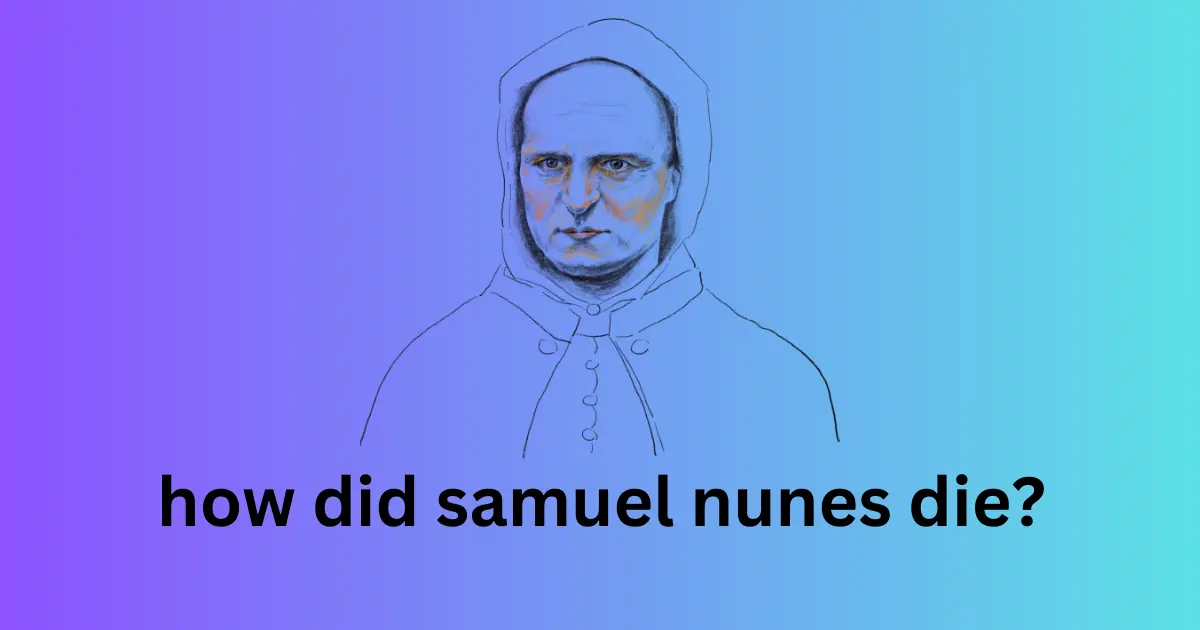Samuel Nunes, a pioneering physician and one of the most celebrated figures in early American history, left an indelible mark on the medical field and the establishment of Savannah, Georgia.
His journey from persecution in Portugal to becoming a lifesaver in the American colonies is inspiring. Yet, his death remains shrouded in mystery, raising questions about how Samuel Nunes died and the circumstances that surrounded his final days.
This article unpacks the life of this extraordinary man, his significant contributions, and the lingering uncertainties regarding his passing. Let’s uncover his story and the historical context in which he lived.
Who Was Samuel Nunes?
Samuel Nunes Ribeiro (often simply referred to as Samuel Nunes) was a Portuguese physician born in Lisbon in 1668. He was a Jew during a time when the Portuguese Inquisition persecuted individuals for their faith. Despite the risks, Nunes secretly practiced Judaism while publicly adhering to Catholicism.
A Life Marked by Resilience
In 1726, Nunes and his family were arrested by the Portuguese Inquisition. Facing dire consequences, he managed to flee to England, eventually joining a group of Sephardic Jews traveling to the New World. Their destination? The burgeoning colony of Georgia, founded under the leadership of James Oglethorpe.
Contributions to Savannah
Upon arriving in Savannah in 1733, Nunes quickly became a prominent figure. During a health crisis that threatened the survival of the colony, Nunes applied his medical knowledge to combat diseases such as dysentery, yellow fever, and malaria. His efforts are credited with saving many lives, cementing his legacy as a foundational figure in the colony’s history.
How Did Samuel Nunes Die?
One of the most puzzling aspects of Nunes’ life is the lack of clear documentation about his death. Despite his prominence, historical records do not provide a detailed account of his passing. However, piecing together clues offers some insight.
Possible Scenarios
- Natural Causes: Considering his birth year, Samuel Nunes would have been in his seventies or eighties when he died, a ripe old age for the time. This suggests that he may have succumbed to natural causes, as life expectancy was considerably lower in the 18th century.
- Health Complications: Nunes was exposed to numerous diseases during his medical career. It is plausible that he contracted one of the illnesses he treated or suffered long-term effects from constant exposure to infectious diseases.
- Limited Documentation: The lack of comprehensive historical records about Nunes’ later life and death could reflect the prioritization of other events in colonial history.
Life Expectancy and Health in the 18th Century
To better understand the context of Nunes’ death, it’s helpful to consider the challenges of 18th-century medicine and life expectancy.
| Factor | Impact on Life Expectancy | Connection to Nunes |
|---|---|---|
| High Infant Mortality | Many individuals didn’t survive childhood. | Nunes’ survival into old age was remarkable. |
| Infectious Diseases | Yellow fever, dysentery, and smallpox were rampant. | Nunes’ exposure as a physician increased his risks. |
| Limited Medical Knowledge | Treatments often lacked scientific backing. | His skills exceeded those of many contemporaries. |
Samuel Nunes’ Legacy
Nunes introduced advanced medical practices to Savannah, many of which were groundbreaking for the region. His approach combined traditional methods with innovative ideas, setting a standard for healthcare in the colony.
Contributions to Religious Freedom
As one of the first Jewish settlers in Georgia, Nunes played a significant role in establishing a precedent for religious tolerance in the colony. His story underscores the importance of diversity and resilience in shaping American history.
| Legacy Aspect | Details |
|---|---|
| Medical Contributions | Treated epidemics, saved lives, introduced advanced care. |
| Religious Significance | Symbol of Jewish perseverance in colonial America. |
| Community Impact | Helped establish Savannah as a thriving settlement. |
Conclusion
The life of Samuel Nunes is a testament to courage, resilience, and the pursuit of excellence in the face of adversity. From his harrowing escape from the Portuguese Inquisition to his lifesaving work in Georgia, his story continues to inspire.
Although the exact circumstances of his death remain unknown, his legacy as a pioneering physician and advocate for religious freedom endures.
FAQs
how did samuel nunes die?
The exact cause of Samuel Nunes’ death is not documented. It is speculated he died of natural causes or complications related to his exposure to diseases during his medical practice.
What contributions did Samuel Nunes make to Savannah?
Samuel Nunes saved many lives during a health crisis in Savannah, treating diseases like dysentery and yellow fever. He also helped establish a foundation for advanced medical care in the colony.
Why is Samuel Nunes significant in American history?
Nunes is celebrated as one of the first Jewish settlers in Georgia and for his contributions to medicine and religious freedom during colonial times.
What challenges did Samuel Nunes face in Portugal?
Nunes faced persecution during the Portuguese Inquisition for practicing Judaism. He and his family were imprisoned before fleeing to England and later to Georgia.
What was healthcare like during Samuel Nunes’ time?
Healthcare in the 18th century was rudimentary, with limited scientific knowledge and widespread diseases. Nunes’ expertise stood out, especially in his treatment of epidemics in Savannah.
